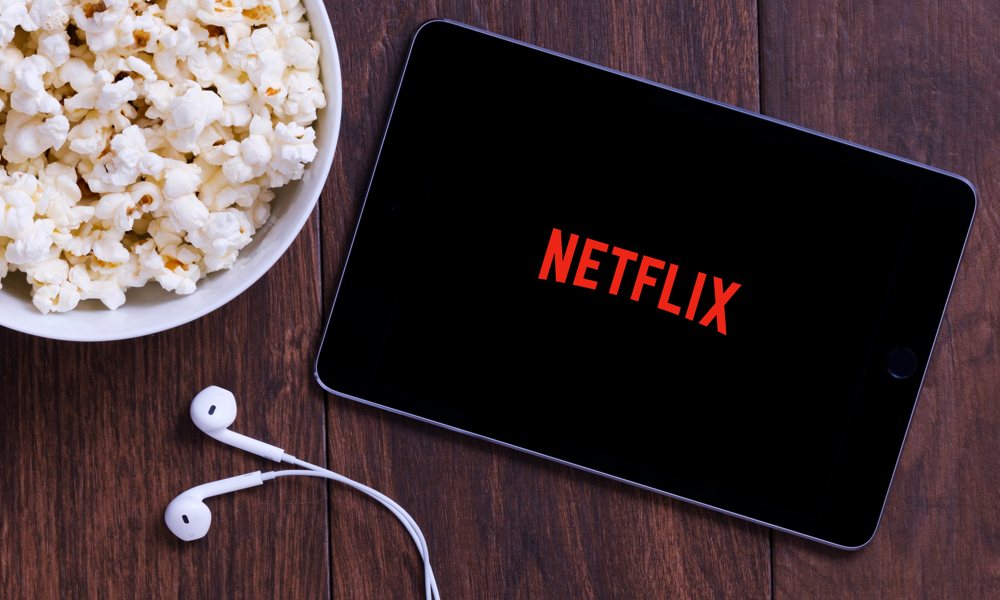Netflix Believes Apple TV+ Might Actually Help Its Growth
 Credit: Riccosta / Shutterstock
Credit: Riccosta / Shutterstock
Toggle Dark Mode
With Apple and Disney set to launch new streaming services next month, and other major content owners like NBC looking to soon start their own as well, the landscape of streaming is about to dramatically shift, and while you might think this is enough to make old-school content providers like Netflix nervous, it seems that the streaming giant isn’t too worried.
Netflix released its quarterly financials this week, and according to CNBC, despite missing revenue expectations and domestic subscriber numbers, its stock still saw an eight percent increase. Netflix had been expected to add 802,000 domestic subscribers in the prior quarter, while the actual number, 517,000, fell far short of that. On the other hand, the company added 6.26 million subscribers internationally, beating expectations in that area.
In a letter to shareholders, however, Netflix reassures investors that the arrival of competing services is actually going to be a boon for Netflix’s business, as it will increase the attractiveness of the streaming market in general.
The upcoming arrival of services like Disney+, Apple TV+, HBO Max, and Peacock is increased competition, but we are all small compared to linear TV. While the new competitors have some great titles (especially catalog titles), none have the variety, diversity, and quality of new original programming that we are producing around the world.
Netflix believes that its in a much stronger position to take advantage of this, since despite “increased competition,” it still has a significantly more diverse slate of content.
More to the point, however, Netflix says that right now all of the streaming services put together are still dwarfed by “linear TV.” In other words, traditional cable and satellite subscriptions still make up the lion’s share of the consumer television market, many of whom only watch Netflix as a secondary service.
In fact, Netflix estimates that right now it only makes up “less than 10% of TV screen time” in the U.S., which is its strongest and most mature market. Plus, it’s not only competing with other streaming providers — which it’s been doing for years with the likes of Amazon, YouTube, and Hulu — but also with mobile devices and gaming services.
While Netflix says the launch of new services such as Apple TV+, Disney+, HBO Max, and Peacock will “be noisy” and mix things up a bit in the near-term, the company believes that by the time the dust settles it will not only continue to grow nicely, but will be able to benefit from the fact that these services will provide stronger incentives for users to “cut the cord” and switch completely over to streaming.
Right now, a lot of folks subscribe to Netflix as an adjunct to their much more expensive cable package. However, if consumers can be convinced to shed their traditional cable subscriptions, they’ll realize that they can easily subscribe to and enjoy several streaming providers for considerably less.
So even if Netflix doesn’t get a bigger share of the streaming pie — or even if its share shrinks slightly — if the overall pie starts growing in leaps and bounds, it’s going to be an overall win, as a smaller piece of a much bigger pie is still a bigger piece.
Netflix also adds that most streaming services have “highly differentiated” libraries made up of “mostly exclusive content,” and of course nowhere is this going to be more true than with Apple TV+, which will be made up entirely of Apple produced originals. With very little overlap between the different streaming services, Netflix believes that there’s little reason to believe that consumers won’t easily consider subscribing to multiple services.
Netflix has already seen this trend in the past, noting that it has experienced the same growth in the U.S., where it’s long been competing with Hulu, as it has in Canada, where Hulu is not available.
It would seem that most of the streaming providers agree that there’s easily room for multiple players, and Apple CEO Tim Cook has also said as much in recent interviews — that he expects Apple TV+ to be an add-on service, and not something that will replace other options. Apple’s entire Apple TV strategy, in fact, from its set-top boxes to its TV app, revolves around this idea, with the TV app providing a place to discover content from a wide variety of different sources, and Apple Channels actively encouraging users to subscribe to other streaming services.
After all, most consumers have been used to subscribing to different cable packages for years, so why should subscribing to multiple streaming services be any different. The key missing factor right now is providing the “glue” that will put all of these together in one interface, so that users don’t have to think about which service they’re using. Apple seems to be one of the few companies to understand this, which could actually be one of the ways in which Steve Jobs famously once declared that he had “finally cracked” the future of television.






